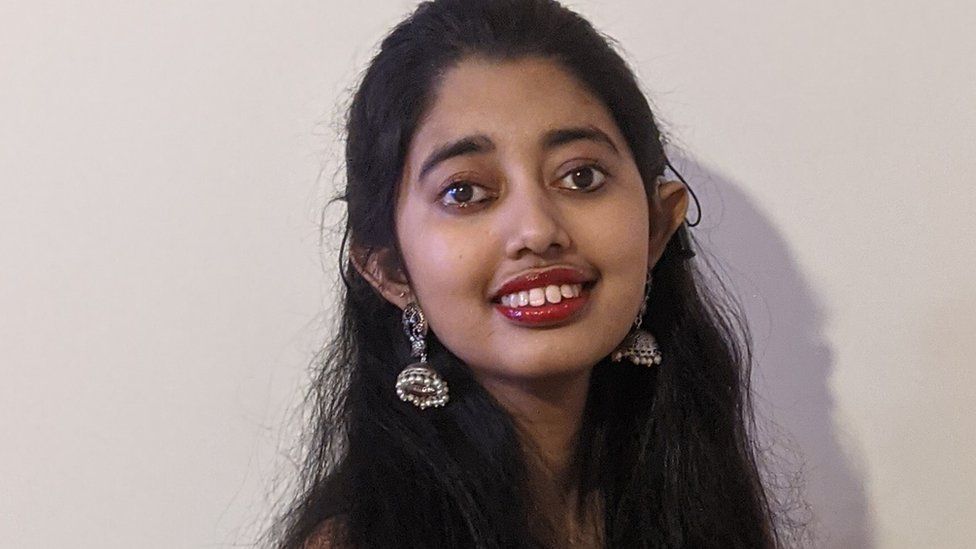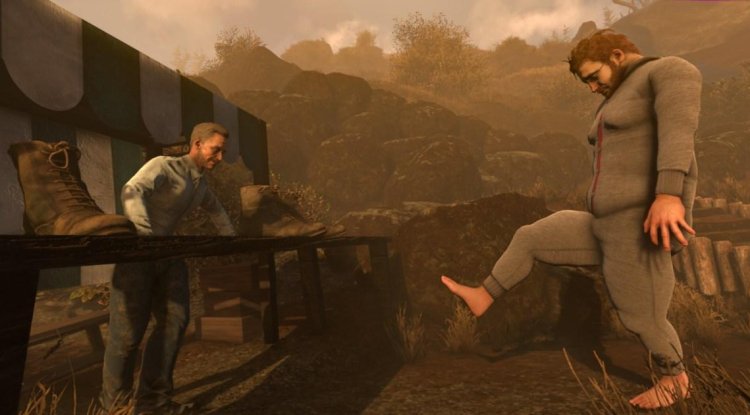[Health] Family of ill teen say they were silenced by courts
Image source, Thirumalesh familyBy Jim ReedHealth reporterA teenager who died while challenging an NHS decision over her life-preserving treatment can be named for the first time.Sudiksha Thirumalesh, 19, had mitochondrial disease and died earlier this month during a legal battle.She wanted to raise money for an experimental treatment she thought might help her rare genetic disorder.As reporting restrictions were lifted, her family spoke of their anger at being prevented from speaking out.Ms Thirumalesh's brother Varshan Thirumalesh said: "We were gagged, silenced and prevented from accessing specialist treatment abroad."The NHS trust involved - which cannot be named - said Ms Thirumalesh needed end-of-life care rather than ongoing treatment.She had wanted to finance a trip to Canada for nucleoside therapy but, in August, a judge ruled that she could not make the decision for herself, because she did not have the mental capacity.The judge also said that: "From the evidence, it appears.
![[Health] Family of ill teen say they were silenced by courts](https://www.9020blog.com/uploads/images/202309/image_750x_650e92d091a04.jpg)

A teenager who died while challenging an NHS decision over her life-preserving treatment can be named for the first time.
Sudiksha Thirumalesh, 19, had mitochondrial disease and died earlier this month during a legal battle.
She wanted to raise money for an experimental treatment she thought might help her rare genetic disorder.
As reporting restrictions were lifted, her family spoke of their anger at being prevented from speaking out.
Ms Thirumalesh's brother Varshan Thirumalesh said: "We were gagged, silenced and prevented from accessing specialist treatment abroad."
The NHS trust involved - which cannot be named - said Ms Thirumalesh needed end-of-life care rather than ongoing treatment.
She had wanted to finance a trip to Canada for nucleoside therapy but, in August, a judge ruled that she could not make the decision for herself, because she did not have the mental capacity.
The judge also said that: "From the evidence, it appears... treatment in Canada is not an immediate option because the trial has been paused as a result of funding constraints."
Her doctors said her breathing difficulties were due to her deteriorating mitochondrial disease weakening her muscles, rather than long Covid or other infections that she has had.
Lawyers for the trust said Ms Thirumalesh, who was known as ST during the legal case, was "actively dying" and needed a ventilator to breathe.
Ms Thirumalesh had a cardiac arrest and died on 12 September before the Court of Protection could hear her case.
Reporting restrictions
Her family say the former A-level student, who had spent almost a year in intensive care, was still able to communicate with her doctors with assistance from her mother and, on occasion, speech therapists.
Judges were told she was a "fighter", and that she had told a psychiatrist: "I want to die trying to live. We have to try everything."
Speaking outside the High Court, her brother Varshan Thirumalesh said in a statement: "We are deeply disturbed by how we have been treated by the hospital trust and the courts."
A judge had earlier imposed reporting restrictions in the case.
The order meant it was impossible for media outlets to name Ms Thirumalesh, and her family was unable to campaign to raise money for treatment overseas.
Her Christian family wanted the order lifted after her death and successfully challenged the ruling on Friday. A second decision about whether the NHS trust and clinicians who treated her can be named, is expected on Monday.
Andrea Williams, chief executive of the Christian Legal Centre which supported the family through the court case, said a more "open and transparent system" is needed, and called for a public inquiry.
"This profoundly disturbing case has demonstrated the urgent need for an overhaul into how end-of-life decisions are made in the NHS and the courts," she said.
Ms Thirumalesh was diagnosed with the same condition as Charlie Gard, a baby from London, whose life support was withdrawn in 2017.
What is mitochondrial disease?
- There are different types - some are present at birth but others can develop later in life, often in young adults
- The mitochondria are the engines of the body's cells and provide energy for all metabolic processes
- The underlying genetic cause may be different for different people but all result in the inability of the mitochondria to produce the right amount of energy
- That causes debilitating physical, developmental and cognitive disabilities
- It can affect different parts of the body, particularly those that require a lot of energy like the brain, heart and liver
- The disease is progressive and has no cure
Related Topics
What's Your Reaction?








![[Uk] Bibby Stockholm migrants describe 'shock and fear' in letter](https://www.9020blog.com/uploads/images/202308/image_650x433_64e84e9d128dc.jpg)




![[Entertainment] Idris Elba: Actors in video games like Phantom Liberty is 'sign of the times'](https://www.9020blog.com/uploads/images/202309/image_750x415_6512c6d8254e4.jpg)
![[World] Ukraine war: Russia demands UN court throw out case against it](https://www.9020blog.com/uploads/images/202309/image_750x415_650957bed2ad4.jpg)
![[Entertainment] Olivia Rodrigo: Second album Guts goes straight to number one in UK](https://www.9020blog.com/uploads/images/202309/image_750x415_65055ae91776d.jpg)

![[Business] BMW investment secures future of Mini factories](https://www.9020blog.com/uploads/images/202309/image_750x415_64ffe58cc2284.jpg)